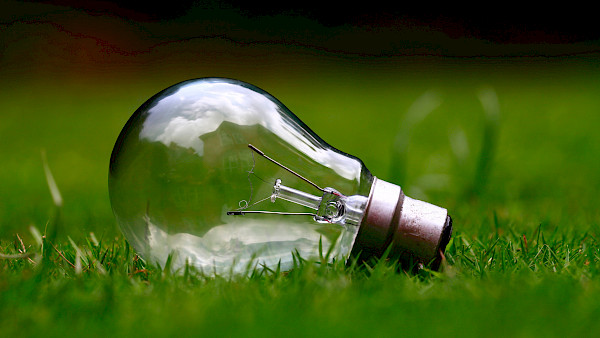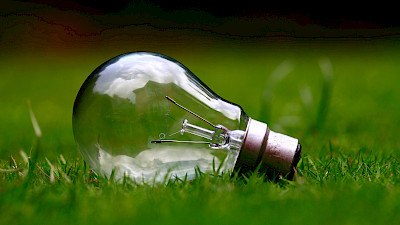
1 May 2018
Written by Calum McGregor
The political debate on energy is heating up. The Big Six’s profits have recently been labelled as ‘obscene’ by a group of MPs, and the government’s much-vaunted energy price cap is due to come into force later this year. There are signs that government and the regulator Ofgem are slowly recognising that the energy market is not serving our interests, even if it won’t entertain the obvious and popular solution: public ownership.
However, if you’re one of the 77% that want to see the UK’s electricity and gas in public ownership, there’s no need to be gloomy about energy this dark winter. At We Own It, we deal in publicly owned solutions to the mess of privatisation, and we think there’s a lot to be positive about. While the big corporate energy giants attempt to resuscitate trust in their broken model, a not-so-quiet revolution has been taking place across Britain. Across the country, cities, local councils, co-ops, and even outer Hebridean islands, have been saying goodbye to corporate energy, and hello to a local energy future: a future that’s green, publicly-owned and full of innovative ideas. Here are our five reasons why local energy is better than the Big Six, and how it can help us achieve a public energy future.
Unlike, large corporate energy companies, local energy suppliers are directly owned by your city, community or local authority. This means they’re directly accountable to their customers, don’t have shareholders, and can focus their energy on providing the best service, fairest prices and greenest energy they can. When it’s owned by you, you can be safe in the knowledge that your energy supplier is working to provide you with the best deal, not their shareholders. This is already happening right here in the UK - with innovative, publicly owned suppliers like Robin Hood Energy, Bristol Energy and People's Energy.
The corporate energy giants are driven by the blind accumulation of profit, and the needs of the people that use their services are second to chasing the next high in their share price. That’s why they’ll take steps like forcibly installing prepayment meters in the households of low income families, and why they had to be forced by the regulator Ofgem to inform their customers if they could move to a cheaper tariff. Local energy suppliers are different. Robin Hood Energy, Bristol Energy and Our Power were all set up by local authorities with the explicit aim of tackling fuel poverty and to help give people a cheaper, more helpful alternative to the Big Six. Bristol Energy aims to be ‘force for social good’; not only ensuring they treat their customers fairly but helping the city to thrive through charity partnerships and community spaces.
It’s been clear for a number of years now that the Big Six are charging us excessive prices for the energy we use. Not only are they quick to pass on increases in the wholesale cost of energy and slow to pass on reductions, they have been found to be making excessive profits at the expense of their customers, and don’t shy away from paying their bosses millions in bonuses. It’s no wonder 1 in 10 of us in the UK live in fuel poverty. But because they’re not-for-profit, local authority energy companies can undercut the Big Six and provide their customers a fairer price for their energy.
While the Big Six struggle to wean themselves off their addiction to fossil fuels, local energy companies are leading the way in the transition to renewable energy. For example, Bristol Energy is working to support local renewable generators with the aim of going 100% renewable. Other countries in Europe are already ahead of us on this, and the German city of Munich demonstrates what can be achieved by publicly owned city energy companies, given sufficient political will, investment and vision. The municipal energy company wants to satisfy the city’s energy demands with 100% renewable energy by 2025, an ambitious target to which public ownership is central. Their transition requires investment of around 9
billion euros by 2025, which can only be successful if the long-term goal is sustainable economic success rather than short-term profit maximization
Whilst local authority energy companies aren’t set up to accommodate direct public participation in decision-making, there are a huge range of local, community energy projects that are seeking to realise one of the key principles of energy democracy: participation. A government report in 2014 found that 5,000 community energy groups have sprung up around the UK since 2008, and they all offer opportunities for local communities to have a engage with their energy supply.
It’s a sector that’s still in its infancy, but it’s growing; Mongoose Energy will soon become the first UK supply company to be majority-owned by community energy groups. It invests the majority of its profits into environmental and social initiatives in those communities where power is generated and helps to provide opportunities for local participation. Where successful, community energy has the potential to draw people in, not just as consumers but also as active contributors in a positive process of change - something we just can’t do with corporate energy.
And you know the best thing about local energy? It represents a genuine opportunity to construct an alternative, publicly owned energy system for all, right under the noses of the Big Six. We can’t keep waiting for a different government to come to power; our planet, society and wallets can’t take much more. We have to find alternative ways to build our energy future. Local energy, in its many and diverse forms allows us bypass the Big Six, set the country on a course to public ownership, and build a more positive, socially responsible, and greener world while we’re at it.

